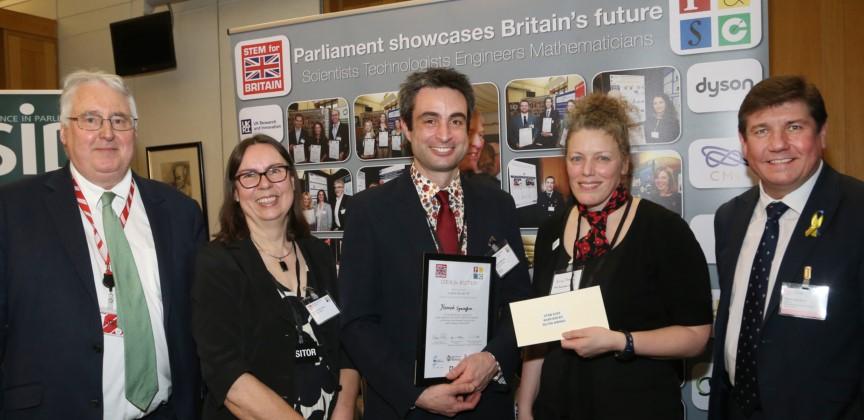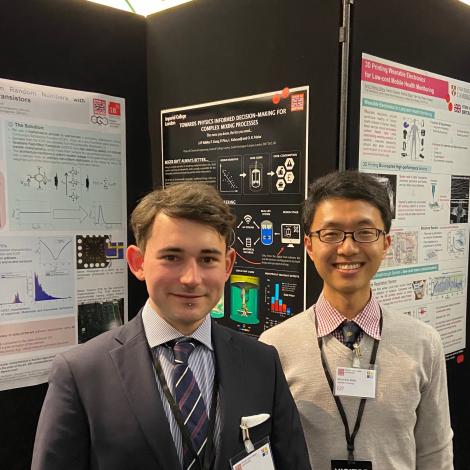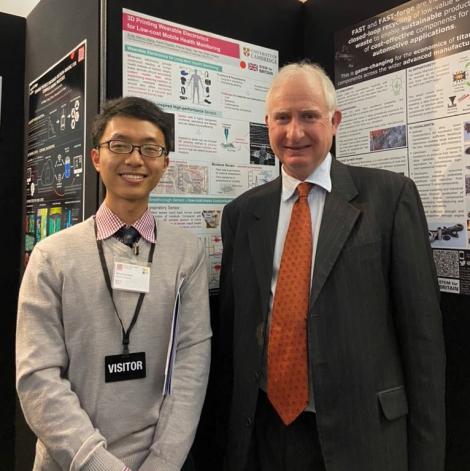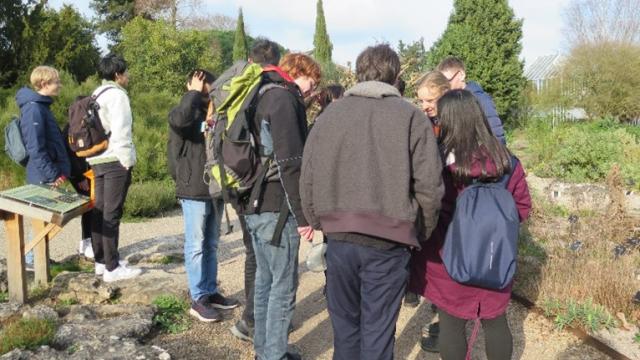
Members of St Catharine’s presented their scientific research to Members of Parliament and peers at STEM for Britain 2022, an annual event that took place in the Houses of Parliament on 7 March as part of British Science Week.
STEM for Britain is a major scientific poster competition and exhibition which has been held in Parliament since 1997, and is organised by the Parliamentary & Scientific Committee. Chaired by Stephen Metcalfe MP, its aim is to give members of both Houses of Parliament insight into the outstanding research work being undertaken in UK universities by early-career researchers across five key areas:
- Biological and Biomedical Sciences
- Chemistry
- Engineering
- Mathematical Sciences
- Physics
Three St Catharine’s members were selected to talk about their research from the numerous applications submitted to the organisers: alumni Hamish Symington (1999, Natural Sciences) and Dr Andy Wang (2016, Engineering), and Nathaniel Tye (a current PhD student in the Department of Engineering).
Hamish, who is completing his PhD at the Department of Plant Sciences and will be admitted as a Fellow of Queens’ College in October, won the second prize in the poster competition for his presentation on optimising crop flowers for pollinating insects. His research uses strawberry plants to study if we can make flowers easier for insects to find, increasing the number of flowers that can be pollinated per day, and if we can improve the nectar and pollen reward so insects can better feed themselves and their colonies:
Hamish commented, “The event was a brilliant opportunity to talk to representatives from the Nutrition Society and the Society of the Chemical Industry about my work, as well as to meet MPs and others who are at the coalface of developing policy. I was particularly pleased to be able to talk to Stephen Metcalfe MP, Chair of the Parliamentary and Scientific Committee, about issues with the provision for childcare support for PhD students. And, on a personal note, it was lovely to be back discussing science in person after such a long hiatus due to the pandemic.”
A postdoctoral researcher at the Department of Engineering, Andy presented his research on the use of 3D printing techniques to produce personalised on-skin electronics for the next-generation low-cost mobile health monitoring. He had an opportunity to meet with Cambridge MP Daniel Zeichner during the poster exhibition to discuss the potentials of 3D printing for remote healthcare and smart diagnoses. Read about Andy’s research when he was a postgraduate at St Catharine’s at caths.cam.ac.uk/3D-printed-fibres.
|
|
|
At a nearby poster, Nathaniel discussed his research on generating non-uniform random numbers with Graphene Field-Effect Transistors (GFETS). Non-uniform random variates have many important science and engineering applications, but methods to generate them are slow and expensive. Novel approaches to accelerate this process are essential so the team at Cambridge are exploring state-of-the-art GFETS as a possible solution.
Nathaniel added, “Being invited to attend STEM for Britain was a huge honour and privilege. Over the last two years, it has been easy to feel disconnected from the wider scientific community, so STEM for Britain was a great venue to reconnect with other researchers across disciplines, as well as to meet MPs and Peers and discuss the nature and value of scientific discovery. There were so many interesting projects and people, and it promises a bright future for science in Britain.”







